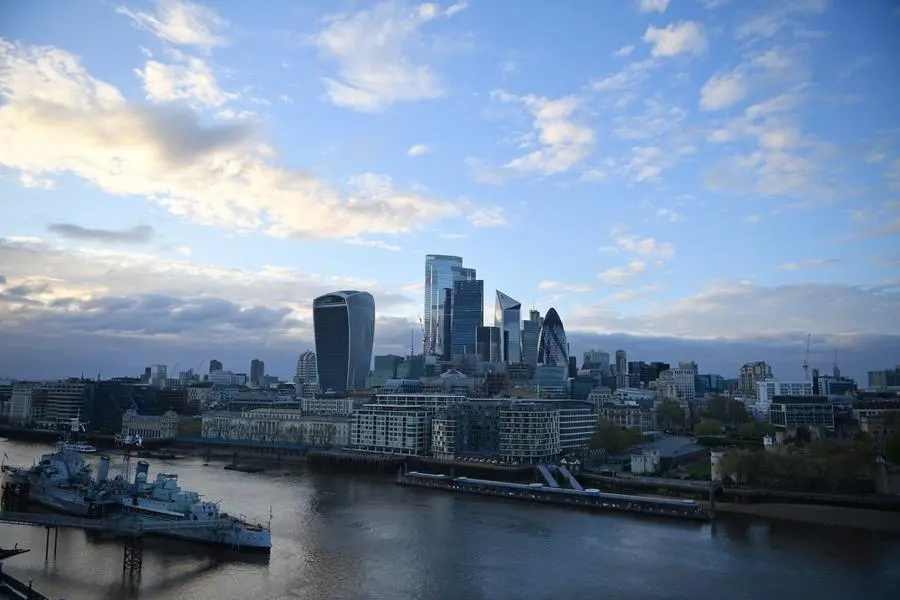PHOTO
Economic growth in the UK will be little to shout about in 2024, according to new forecasts from the International Monetary Fund (IMF), and policymakers should be wary of stubborn services inflation.
In its latest World Economic Outlook, the global fiscal watchdog forecast that the UK would grow 0.7 per cent in 2024, unchanged on its last projection in May. This would put the UK in line with Japan and Italy and ahead of Germany, which is only expected to grow 0.2 per cent due to continued weakness in manufacturing.
France is expected to grow 0.9 per cent while the US will power ahead of other advanced economies, notching annual growth of 2.6 per cent. Looking forward, the IMF expects the UK economy to grow 1.5 per cent next year, unchanged on its previous round of forecasts.
The IMF’s forecasts for this year will seem fairly pessimistic given the UK’s surprisingly strong performance so far in 2024. The economy grew 0.7 per cent in the first quarter, making it the fastest growing economy in the G7. After surprisingly strong growth in May, many economists think that the UK could come close to matching that performance in the second quarter.
Over the last few days, a number of forecasters have been upgrading the UK, with Barclays and Goldman Sachs both suggesting the UK could grow 1.1 per cent in 2024. Although the IMF’s global growth forecasts are largely unchanged, the body sounded the alarm on the persistence of services inflation in advanced economies.
“Services price inflation is holding up progress on disinflation, which is complicating monetary policy normalisation,” the IMF said. “Upside risks to inflation have thus increased”.
The forecasts noted that strong wage growth could also make it more difficult for inflation to come back under control when profit margins are already squeezed, particularly if productivity growth remains weak.
In a blog accompanying the forecasts, chief economist at the IMF, Pierre-Olivier Gourinchas, warned that “rising services prices and wages may keep overall inflation higher than desired.” He added: “Even absent further shocks, this is a significant risk to the soft-landing scenario”.
Figures out earlier this month showed that the economy grew 0.4 per cent after stagnating in April. This was double the rate of growth expected by experts. Gross domestic product (GDP) is higher than it was in June last year, just before the start of the shallow recession.
Following the figures, a host of City forecasters and investment banks upped their guidance for the coming months. Sanjay Raja, UK economist at Deutsche Bank, now predicts a 0.6 per cent expansion across the second quarter, up from a forecast of 0.3 per cent at the beginning of the year. Barclays also expect a 0.6 per cent expansion.
Goldman Sachs and Capital Economics, meanwhile, both think that the UK could match its performance in the first quarter of the year, when it grew 0.7 per cent. Looking across 2024 as a whole, Goldman and Barclays both now think that the UK could grow 1.1 per cent while Deutsche projects a 1.2 per cent expansion. These forecasts are much more optimistic than the Bank of England, who projected a 0.4 per cent annual expansion back in May.
Looking forward, however, most economists think quarterly growth will slow.
“Recent growth feels too good to be true,” Rob Wood, chief UK economist at Pantheon Macroeconomics said. Wood pointed to recent business surveys which have shown a slowing in activity. S&P’s services purchasing managers’ index, for example, fell to a seven-month low in June.
Economists at Barclays agreed that momentum would slow. “We think this first half performance partly represents an economic bounce following last year’s recession and some temporary seasonal influences, thus overstating underlying growth,” they said. (The writer is our foreign correspondent based in the UK)
2022 © All right reserved for Oman Establishment for Press, Publication and Advertising (OEPPA) Provided by SyndiGate Media Inc. (Syndigate.info).





















